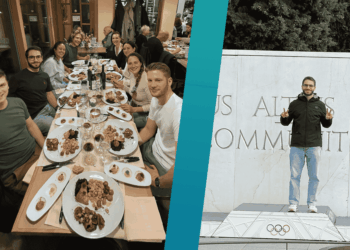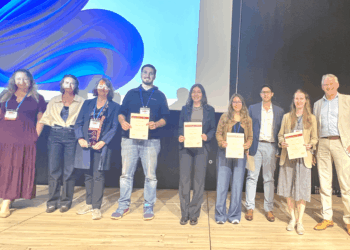The cancer research community is reacting and adapting to the restrictions placed on us by the COVID-19 outbreak. We’ve asked EACR members to contribute articles and advice on the theme of ‘How to be a cancer researcher during coronavirus’.
Let’s just go ahead and say it: this is a terrible situation. There is nothing good about a killer virus, and we all long for the days when our biggest existential fear was a looming grant deadline. However, this is our new norm for the time being. All we can do is try to make the most of it.
For those of us with the luxury of good health, we are adapting to a “work from home” life – and in this, we’re faced with two challenges. First, we need to find ways to stay productive in an environment which we typically associate with leisure, family time, and other aspects of home. Second, as experimental biologists we cannot transfer our work with much ease. Therefore, we need to find enough to do so that we progress and stay engaged during this time.
Challenges both familiar and unfamiliar
 The first challenge is not unique to our field. I’m sure we’ve all scoured the internet for tips on creating a quiet and productive workspace at home. The second challenge, though, is quite unique to our field. I believe it requires not only a physical adjustment but a mental one as well. After the initial stress of unfinished experiments and the uncertainty of when normal lab function will resume, I’ve finally come to consider this challenge as not a hurdle, but an opportunity. This is the time for us to read that stack of papers we’ve “saved for later”, and to learn a new subject field that we wish we had more time to read about.
The first challenge is not unique to our field. I’m sure we’ve all scoured the internet for tips on creating a quiet and productive workspace at home. The second challenge, though, is quite unique to our field. I believe it requires not only a physical adjustment but a mental one as well. After the initial stress of unfinished experiments and the uncertainty of when normal lab function will resume, I’ve finally come to consider this challenge as not a hurdle, but an opportunity. This is the time for us to read that stack of papers we’ve “saved for later”, and to learn a new subject field that we wish we had more time to read about.
In short, it’s the time to do all the things we’ve been meaning to do, but haven’t gotten around to due to packed experimental days. In the past couple weeks, I started learning a new programming language and caught up on papers about cancer metabolism (my field of study). I’ve also read a couple review articles about cancer immunology (not my field of study but one I always wanted to know more about). I secretly love that I have this time to just learn.
A time for new ideas
 In addition to using this time to learn new things, it can also be the time to think: to really reflect on our projects, to come up with new ideas, and to forge new collaborations. Perhaps you’ll find a more sophisticated way to analyze or present your data. Or perhaps looking at your results in depth will give you a very clear picture of next steps to take when you’re back in the lab. Maybe all the reading you’re doing will spark an idea for a new project and lead to partnerships with other scientists.
In addition to using this time to learn new things, it can also be the time to think: to really reflect on our projects, to come up with new ideas, and to forge new collaborations. Perhaps you’ll find a more sophisticated way to analyze or present your data. Or perhaps looking at your results in depth will give you a very clear picture of next steps to take when you’re back in the lab. Maybe all the reading you’re doing will spark an idea for a new project and lead to partnerships with other scientists.
Perhaps we will come out of this lockdown with more fresh ideas and organized minds than ever. Perhaps we will come to – dare I say? – enjoy this time we have to reflect on our science, and become better researchers for it.
About the author:
 Deepti Mathur is an Alan and Sandra Gerry Postdoctoral Research Fellow in the Xavier Lab at the Memorial Sloan Kettering Cancer Center. She is using experimental and mathematical techniques to investigate therapeutic resistance and the role of metabolism in metastasis. Deepti is also interested in science communication – she was a finalist for Science magazine’s Dance Your Ph.D. competition, and won her institution’s Postdoc Slam.
Deepti Mathur is an Alan and Sandra Gerry Postdoctoral Research Fellow in the Xavier Lab at the Memorial Sloan Kettering Cancer Center. She is using experimental and mathematical techniques to investigate therapeutic resistance and the role of metabolism in metastasis. Deepti is also interested in science communication – she was a finalist for Science magazine’s Dance Your Ph.D. competition, and won her institution’s Postdoc Slam.









